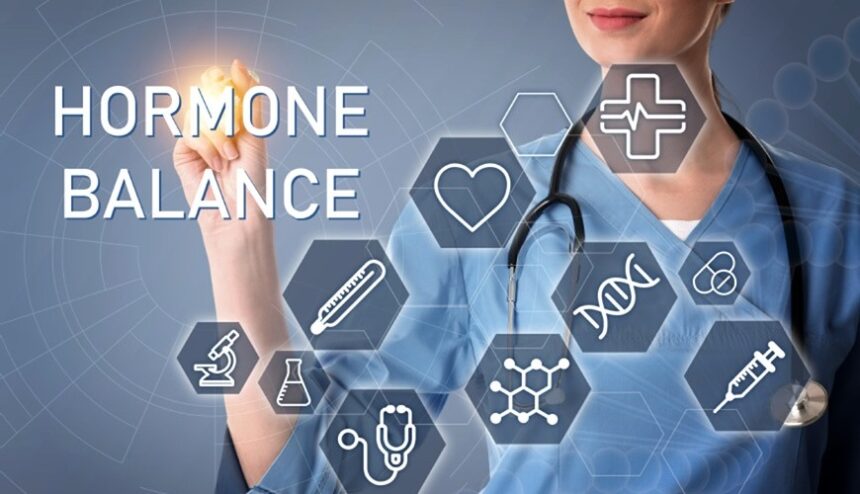 By Claire Fletcher, MD, Family Medicine with Obstetrics
By Claire Fletcher, MD, Family Medicine with Obstetrics
When you think “hormones,” do you automatically think “that time of the month,” or if older, menopause? A variety of hormones—not just estrogen levels—play important roles throughout a woman’s life, and it’s important to know how they keep us healthy or cause changes at various stages. Here are a few:
Estrogen
Estrogen is produced in the ovaries and is an important female sex hormone. In puberty, along with progesterone, it prepares a young woman’s uterus to begin menstruating. Higher estrogen increases vaginal lubrication as well as the desire for sexual intercourse. Higher estrogen levels may lead to some types of cancer, as well as weight gain, disrupted sleep patterns, a decreased interest in sex, and problems with menstruation, among other conditions.
Progesterone
In the female reproductive system, progesterone helps the uterus to get ready for pregnancy and is also necessary early in pregnancy by preventing premature labor or miscarriage. Low or imbalanced progesterone can also lead to heavy/irregular menstrual periods or issues with fertility. The risk of breast cancer increases if there is too much progesterone.
Testosterone
While testosterone is generally attributed to men, androgen testosterone is also found in female ovaries, fat cells, and adrenal glands. Androgens are sex hormones that prompt the beginning of puberty and body development and are essential in reproductive health.
If a woman has too much testosterone, the hair on her head could become thinner while experiencing more hair growth on her body or face, as well as increased body fat and either less or more interest in sex.
Insulin
Produced by the pancreas, insulin’s main job is to help regulate blood sugar by turning it into energy. If a body can not process insulin or is unable to create it, insulin resistance, prediabetes, or diabetes can result. Learn more about insulin and diabetes in our blog. Women are at increased risk of diabetes during pregnancy. This type of diabetes is called “gestational diabetes ” (GDM) And can put the health of both mom and baby at risk. Even though most GDM goes away after delivery, moms who have had GDM are also at higher risk of getting diabetes later in life.
Cortisol
Cortisol is often called the stress hormone due to releasing increased amounts of cortisol in stressful situations. If increased cortisol levels continue, autoimmune problems, anxiety, weight gain, high blood pressure, and other concerns can result. Opposite results occur when lesser amounts of cortisol are released.
Thyroid hormones
Thyroid hormones regulate the body’s metabolism. When an imbalance occurs, weight and energy can be affected. Too much thyroid hormone is called hyperthyroidism, and too little is called hypothyroidism. There are treatments for both, but it is important to get evaluated to find out why the thyroid hormone imbalance is occurring.
Whatever stage of life you’re in as a woman—from a teen heading into puberty to a woman with life experience facing the challenges of menopause and every stage in between, it’s important to have regular checkups so your provider can review your health history and current condition. Many hormones affect our bodies, and their levels change as we age.


